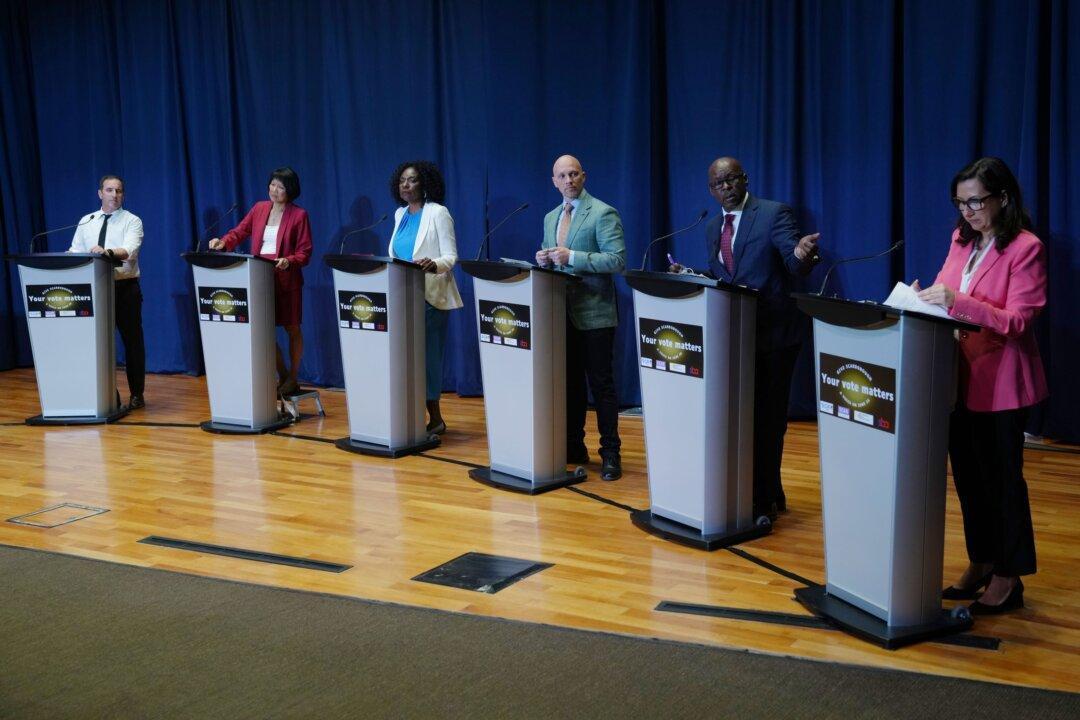Torontonians elected right-leaning mayors in the last two elections, but so far the polls show that a left-wing front-runner is leading the race for the mayor’s chair as the city heads toward election day on June 26.
“Toronto is a balance of right and left,” Mike McGregor, an associate professor of politics and public administration at Toronto Metropolitan University, told The Epoch Times. Some areas, such as Etobicoke, are very conservative, he said.





